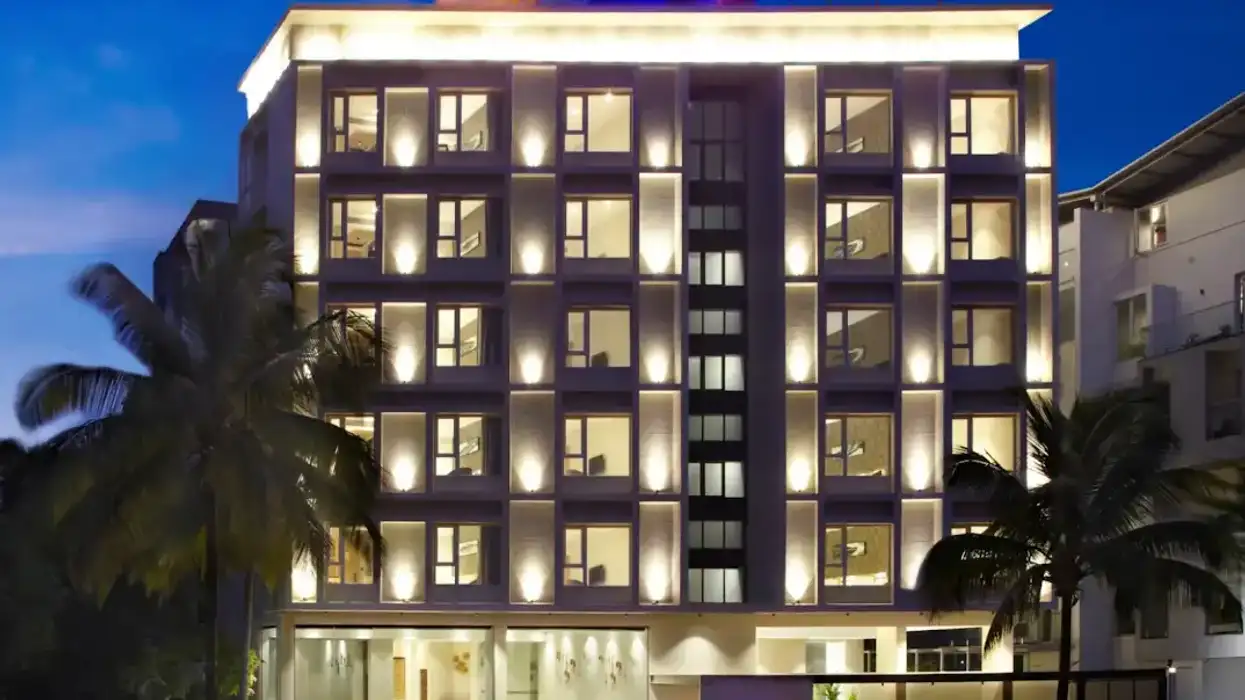PRESIDENT DONALD TRUMP visited India this week, bringing with him a delegation of officials to discuss trade and security. The trip came less than six months after Trump met Indian Prime Minister Narendra Modi at the “Howdy Modi” event in Houston.
Trump and his party, including first lady Melania Trump, daughter Ivanka Trump and her husband and senior advisor the president Jared Kushner arrived in Ahmedabad in the state of Gujarat where he spoke at Sardar Patel Stadium with Modi, according to a Whitehouse statement.
“The first lady and I have just traveled 8,000 miles around the globe to deliver a message to every citizen across this nation: America loves India, America respects India, and America will always be faithful and loyal friends to the Indian people,” Trump said in his speech. “Five months ago, the United States welcomed your great prime minister at a giant football stadium in Texas, and today, India welcomes us at the world’s largest cricket stadium right here in Ahmedabad.”
Trump went on to talk about Modi’s rise to his current high position from his humble origins as a chai wala, or tea-seller.
“Prime Minister Modi, you are not just the pride of Gujarat,” the president said. “You are living proof that with hard work and devotion, Indians can accomplish anything.”
The relationship between the two leaders was center stage during the Howdy Modi event in Houston on Sept. 22. More than 50,000 people attended the event, sponsored by the Texas India Forum, despite the city having been struck by widespread flooding from Tropical Storm Imelda.
Among them was Miraj Patel, president and CEO of Mirage Hospitality an active volunteer for the event, which he called “simply electrifying.” Patel, who is AAHOA’s recently elected young professional director for the western division, said he was also excited to hear about Trump’s trip.
“President Trump’s visit to India provides another opportunity for improving the relationship between the two countries and strengthening their strategic partnership,” Patel said. “To me, this visit simply shows the strength of India and the current leadership’s commitment towards their drive to accomplish the goals set to achieve a potential boon for economic growth.”
Modi spoke at the Howdy Modi event in Hindi, beginning with “Howdy, my friends.”
“The energy of NRG bears testimony to the growing synergy of India and the United States of America,” he said. “This diversity of India is the very basis of our vibrant democracy. This is our strength. This is our inspiration. Wherever we go, we take with us the values of diversity and democracy. You can feel the strength and depth of the bonds between our two nations.”
Trump’s delegation then flew to the Indian capital of New Delhi where they attended ceremonial events and met with Indian investors interested in doing business in the U.S.
There are several differences between India and the U.S. that may be discussed during the trip, the administration official said. For example, the possibility of restoring India’s participation in the U.S. Customs and Border Protection’s Generalized System of Preferences that provides duty-free treatment to goods of designated beneficiary countries.
A White House official said India was dropped from participation in the GSP because it failed to “provide equitable and reasonable access to its markets in numerous sectors.”
“The trade and economic relationship with India is critically important to the U.S., and I think also access to the U.S. market is critical to the Indian government,” the official said. “We do want to make sure that we get this balance right. We will likely have discussion with the prime minister about these concerns and continue the discussion beyond this visit.”
However, Trump said he is working on a new trade agreement with India.
“We are in the early stages of discussion for an incredible trade agreement to reduce barriers of investment between the U.S. and India,” Trump said. “I am optimistic that, working together, the prime minister and I can reach a fantastic deal that’s good and even great for both of our countries.”
Trump also spoke about the importance of the Indian American community.
“In America, we have come to know the splendor of Indian culture personally, through the 4 million Indian Americans living in the United States as our wonderful friends, colleagues, and neighbors,” he said. “Indian Americans enrich every aspect of our national life. They are titans of business; the biggest, the best pioneers of science; masters of the art; and innovation of technology like few people have been able to see no matter where you go anywhere in this universe.”
Trade between the U.S. and India exceeded $142 billion in two-way trade in 2018, according to a White House statement. India is an increasingly important market for U.S. energy exports, the statement said.
In concluding his speech, Trump urged Indians to stay united.
“Today I say to every Indian – north and south, Hindu and Muslim, Jewish and Christian, rich and poor, young and old: Take pride in the glories of your past, unite for an even brighter future, and let our two nations always stand together as powerful defenders of peace and liberty, and the hope of a better world for all of humanity,” he said.





